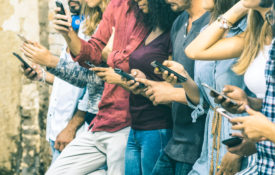-
How to Prepare for a Disaster, Emotionally and Mentally
IT WAS AUGUST 2020 and the United States had just surpassed its 5 millionth reported Covid-19 case. Meanwhile, hundreds of fires raged across my home state of California, incinerating small towns. Local news toggled between maps with red blotches indicating Covid hot spots or areas vulnerable to the fire’s path. I imagined embers leaping closer to home or toxic air swirling outside, a concoction of virus and smoke. While I was safe and sheltered with a well-stocked emergency bag nearby, I found myself ill-equipped and incapable of keeping my head calm as the foundations of my world—routines, interactions, surroundings—melted away.
-
Parents Are Losing Their Minds Over Masks in Schools
On the first day of school last week, Kelly Carothers picked up her 5-year-old twins from the bus stop and noticed that the kids weren’t wearing their masks. “It’s hot on the bus,” they explained, “and no one else was wearing one.” She asked if they had worn them throughout the school day. “Well,” they said, “sometimes.” The incident confirmed Carothers’s worst fears about this school year. Public-school students in her Florida county, Hillsborough, are technically required to wear masks to school. But in an attempt to please everyone, parents may opt their kids out of mask wearing by signing a form. Masks also remain optional for teachers.
-
Coping With The Reality Of Climate Change
AUDIE CORNISH, HOST: The U.N. has said that it is unequivocal that humans have warmed the Earth and that the scale of the changes is unprecedented. And the predictions are dire - more drought, more fires, heat waves - if we don't change our ways. And it's not the first time we've heard it, though the evidence linking human behavior to climate change is now stronger. So that got us wondering, how does such overwhelming news affect us and our desire to do something about it? We're joined now by Dr. Elke Weber, professor of psychology at Princeton University, and she also contributed to the U.N.'s latest climate report. Welcome to the program.
-
Why This Stage of the Pandemic Makes Us So Anxious
With the threat from the delta variant bearing down across the United States, it’s almost hard to remember the heady days earlier this summer when many of us were experiencing relief, joy, even euphoria as we began to resurface from the pandemic. Barbecues with friends, dinners out, live music, connecting with people face-to-face — all of the antidotes to isolation we’d been craving became tangible realities.
-

Stressed Teens Benefit from Coping Online, but a Little Goes a Long Way
Cell phones and social media can help teens cope with stressful events—as long as they strike the right balance between spending time online and pursuing other coping activities.
-

New Content From Perspectives on Psychological Science
A sample of articles on personality and arts education, neuroscience, inner-experiences, emotions, moral judgments, dual- and single-process models, biases holding back theorizing in psychological science, and habits and goals.

